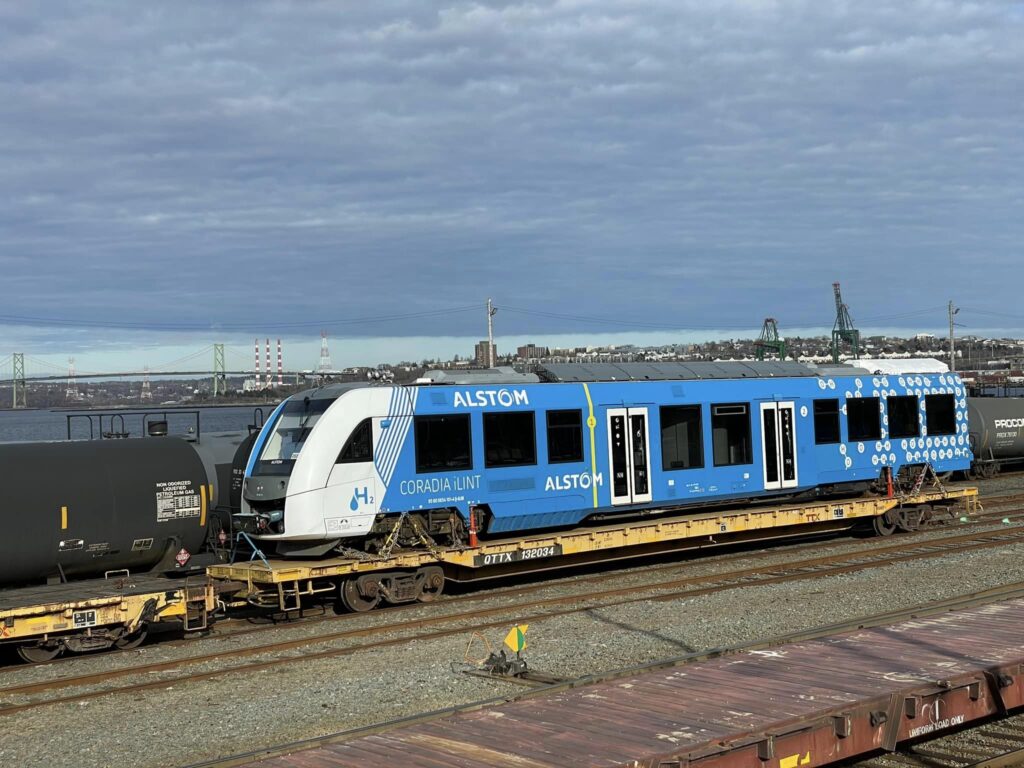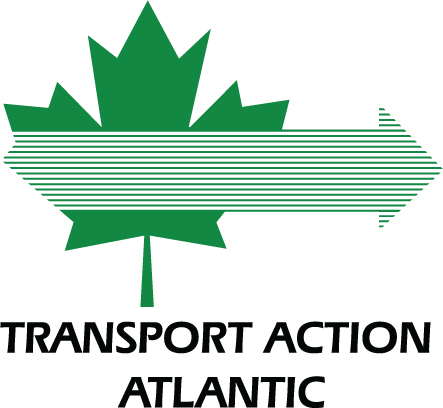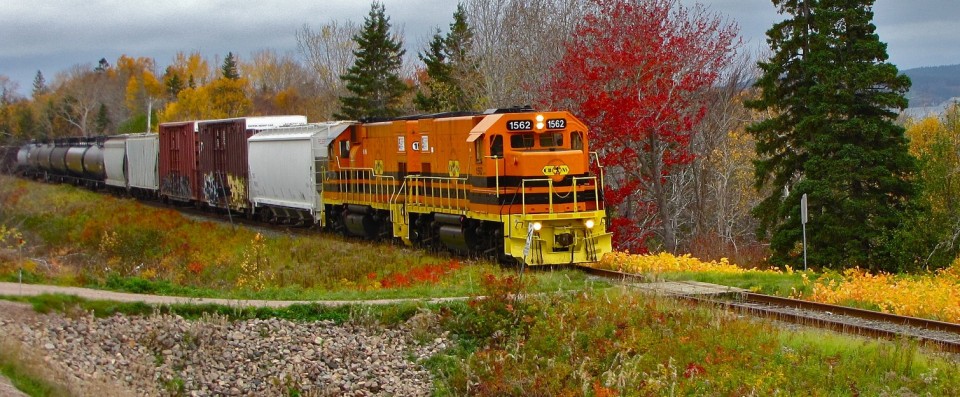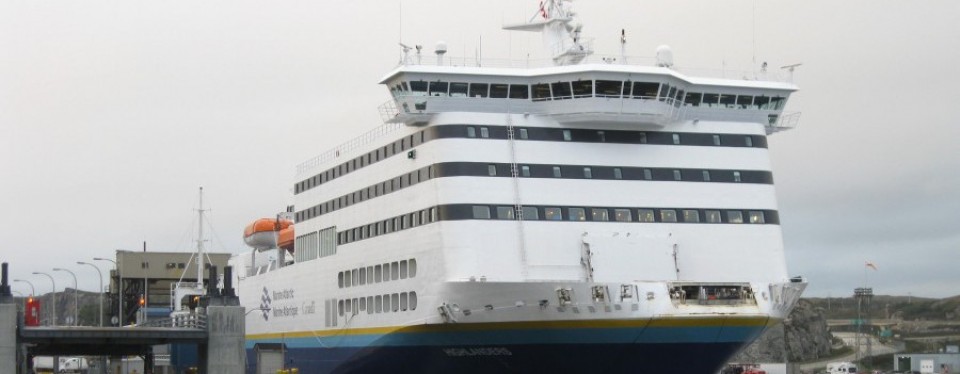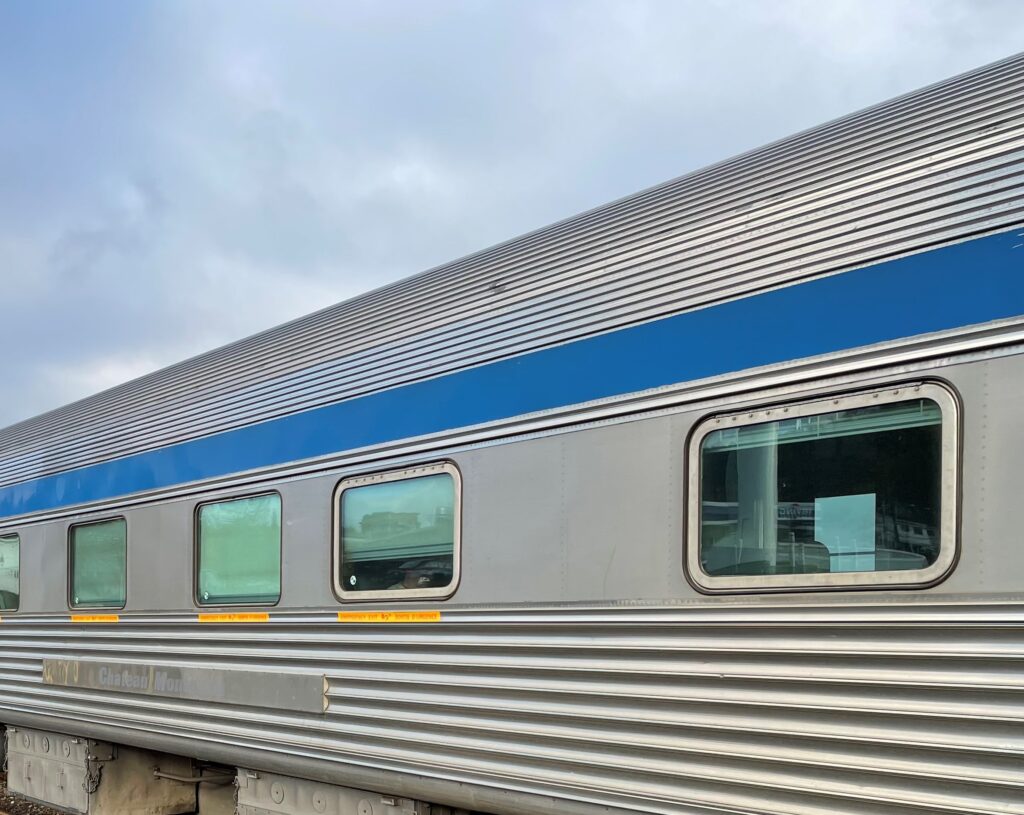Welcome to this special edition of Atlantic Transport News. The 2024 Federal budget was released yesterday, and it contains several positive items for Atlantic Canada. There have also been a couple of other interesting news developments of late, so let’s get right into it! Here’s what you’ll find in this edition:
- Budget 2024: VIA Rail long-distance fleet renewal gets the green light
- Other Budget 2024 positives for Atlantic Canada
- Bedford-Halifax fast ferry gets funding
- Chignecto Isthmus – Provinces formalize agreement to move work ahead
- Cape Breton Rail – Subsidy ends, but province to study light rail transit
- EVENT: Cape Breton Transportation Townhall
- EVENT: Transport Action Canada AGM
- A glimpse of what could have been…
BUDGET 2024: VIA RAIL LONG-DISTANCE FLEET RENEWAL GETS THE GREEN LIGHT
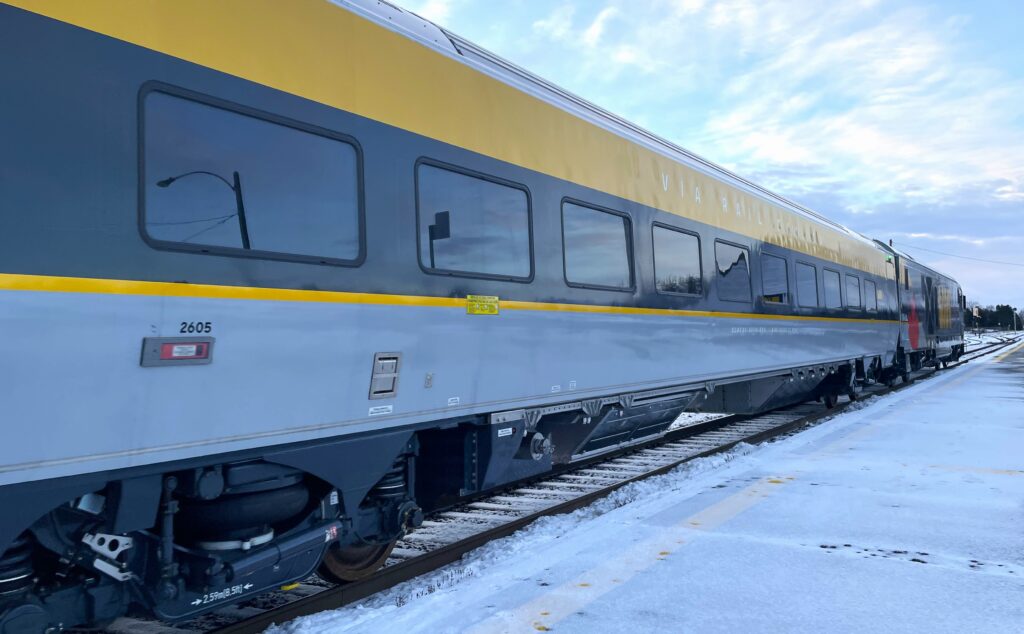
The 2024 Federal budget was unveiled on Tuesday, April 16, and those following VIA Rail issues were watching this one closely and with a mix of anticipation and trepidation. As highlighted by VIA and outlined in our own pre-budget submission and advocacy, this year marked a critical point for the fleet that supports all of VIA’s routes outside of the Quebec-City Windsor Corridor. With the long-haul equipment expected to meet its end of life by the early to mid-2030s, procurement for a replacement fleet needs to start now if there’s any chance it will be ready for delivery in time to avoid service cuts. VIA has done considerable work to be ready to launch this, they were just waiting on the budget approval.
With this in mind, we were extremely pleased to find this line on P. 256 of the budget document, which states: “Budget 2024 proposes to provide … New funding for VIA Rail to replace its aging fleet on routes outside the Quebec City-Windsor corridor. Funding amounts are not being released to protect the government’s negotiating position for an upcoming procurement.”
We absolutely welcome the government’s recognition that the procurement process must be started without further delay. The absence of detail at this stage is understandable, given the competitive nature of the process. As VIA launches into the formal procurement, hopefully within the coming months, we will continue to advocate the need to ensure that the outcome results in equipment that will be reliable under Canadian operating conditions, and in sufficient quantity to restore daily service between Montreal and Halifax.
Within this region, there is still the critical issue that track infrastructure in northern New Brunswick is in terrible shape and in need of substantial investment to bring it back to acceptable standards. This budget does nothing to directly address this, so we will continue to make that case.
Aside from these specific points, it is also encouraging to see the acknowledgement in the budget that “Canadians are increasingly switching to clean transportation options, and taking the train is one of the most environmentally friendly ways to travel across our country.” Let’s hope that the government will provide the supports needed to not only provide new trains for VIA’s services across the country, but also
BUDGET 2024: OTHER POSITIVES
The VIA Rail long distance funding wasn’t the only item in the budget worth highlighting. P. 258 features the heading “Reliable Transportation in Atlantic Canada”, and lists three items: “(1) $124.1 million over five years, starting in 2024-25, with $32.9 million in remaining amortization, to Marine Atlantic Inc. to support its continued operations and keep fares affordable; (2) $2.5 million over two years, starting in 2024-25, to Transport Canada to freeze fares under the Ferry Services Contribution Program until December 2025; (3) and, $13.7 million over two years, starting in 2024-25, to Transport Canada to negotiate a continued toll freeze on the Confederation Bridge in 2025 and 2026.”
The commitment to an ongoing freeze on Confederation Bridge tolls and federally supported ferry services is welcome, but it is somewhat concerning that the terminology regarding Marine Atlantic is somewhat vague, using the words “keep fares affordable” rather than “freeze fares”. It would be appropriate to remind government that the existing Marine Atlantic tariff is well above the level envisaged by the Terms of Union when Newfoundland joined Confederation 75 years ago.
We also welcome the commitment to public transit, particularly as it is being tied to housing projects, and TAA will continue to advocate for support to projects in this region under the Zero Emission Transit Fund and the Rural Transit Solutions Fund.
BEDFORD-HALIFAX FAST FERRY GETS FUNDING
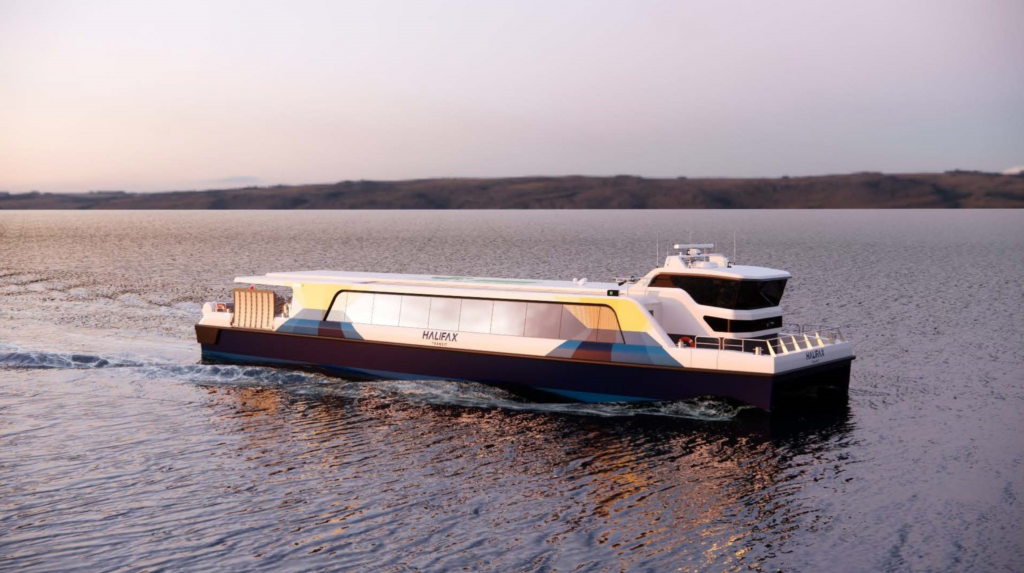
In other recent news, the long discussed fast ferry project to link Bedford to downtown Halifax appears ready to set sail, as funding has been secured from all three levels of government to back the project. Pitched as a replacement for the now-abandoned commuter rail project, this ferry system has been a major part of Halifax’s rapid transit strategy, and will take advantage of the existing harbour to provide a more direct transit option to downtown, fully separated from the ever worsening traffic and congestion along the Bedford highway.
A new ferry terminal and intermodal hub will be built at Mill Cove, with a bridge across the CN rail line, and the downtown ferry terminal will be rebuilt to accommodate the new vessels. Five all-electric ferries will be built for the service, which will initially link these two terminals and may in the future be expanded to include stops at Larry Uteck and Shannon Park on the Dartmouth side of the harbour.
Now that it has the go ahead, the project is currently expected to be completed and operational in the 2027-28 fiscal year.
CHIGNECTO ISTHMUS – PROVINCES FORMALIZE PARTNERSHIP TO MOVE SOME WORK AHEAD
The provinces of Nova Scotia and New Brunswick have taken a step forward in collaboration on the badly needed Chignecto Isthmus project, with a memorandum of understanding (MOU) now in place between the two provinces.
The argument over funding continues, as noted in this article, but with the decade-long timeline for the project and every growing climate related concerns, any progress towards this work is welcome.
CAPE BRETON RAIL – PROVINCIAL SUBSIDY ENDS, BUT LIGHT RAIL TO BE STUDIED
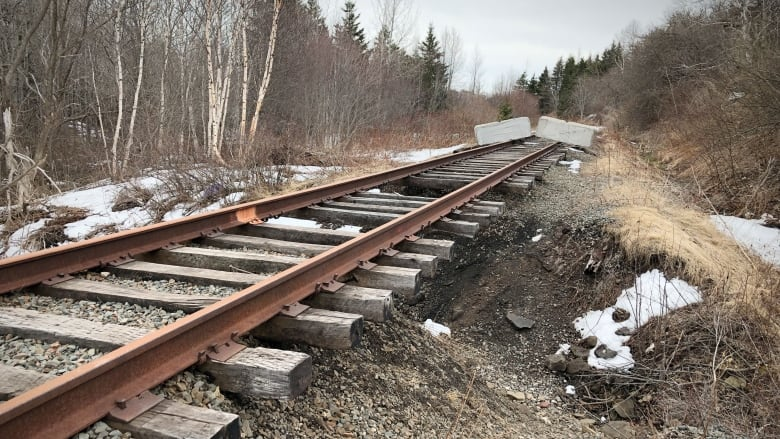
This month saw a pair of back to back announcements related to Cape Breton’s long dormant rail line. The first was the potentially disappointing but unsurprising news that the provincial government would be ending the subsidy that had been provided to the railway owner to keep the dormant line across the island in place. The province cited the new ownership involvement from CN, and noted the lack of any clear business case that has yet been made for the investment to restore the line to operation. It seems that it will now come down to CN to provide some indication of their plans and case for the line, but there is yet considerable uncertainty about what their involvement will mean.
Immediately on the heals of this news was a rather surprising announcement that the province of Nova Scotia will be providing $600,000 in funding to Cape Breton University to complete a feasibility study for a light rail transit system for Cape Breton. Motivated by a surge in population in the Sydney area driven primarily by the university, which has resulted in the over-straining of Cape Breton’s limited transit system, this study will be looking at the potential development of a “battery-powered light-rail train service in CBRM, building on existing infrastructure and the rail corridor.” University president David Dingwall made a direct connection between the end of the subsidy and the funding for this study, stating that “the cancellation of the subsidy on the Cape Breton rail line has opened opportunities for something new in CBRM that will benefit the community for generations to come.” We will of course be watching this closely as it develops, and if there is a good case for the project, we hope the province will also follow through with funding to build and operate the system, not just the study.
CAPE BRETON TRANSPORTATION TOWNHALL

A group representing a variety of Unama’ki – Cape Breton’s leaders in transportation and economic development will be holding a town hall-style discussion on “The Impact of Transportation Costs on Life and Work in Unama’ki – Cape Breton” on May 6 at the Port of Sydney.
This public information session is designed to explore the importance of diversifying transportation systems on Cape Breton Island and will include a panel discussion highlighting the potential economic impacts, including employment opportunities, of an updated and diversified system of commercial shipping options. The session is co-hosted by the Cape Breton Partnership, Cape Breton Regional Chamber of Commerce, Scotia Rail Development Society, Port of Sydney, and JA Douglas McCurdy Sydney Airport.
The panel discussion will be moderated by Tyler Mattheis, President and CEO of the Cape Breton Partnership and will focus on the need and opportunities for expanded and diversified systems for commercial shipping. Some of those opportunities could include expanded export potential, expansion of manufacturing opportunities for existing operators, and the attraction of outside investment to the Island. The panel will feature local experts on investment attraction, export, engineering, bulk shipping, and green energy.
“The CBRM, as the urban hub of Unama’ki – Cape Breton, is recognized as a key economic hub with the potential for a diverse transportation network that includes road, rail, sea, and air infrastructure,” says Tyler Mattheis. “However, without significant updates and expansion of each of these systems, the CBRM is restricted in its ability to fully contribute to a strong and growing Nova Scotia, despite the many opportunities for economic development and growth.”
“We are at a pivotal point in history where CBRM is growing, and we must continue to plan for the future,” says CBRM Mayor Amanda McDougall-Merrill. “Innovation in transportation needs to be balanced with affordability and access for all residents.”
The event will also feature a “Town Hall” discussion featuring local businesspeople who will talk about how the diversification of commercial transportation could affect their businesses as well as the lives of the residents of Unama’ki – Cape Breton.
“Our goal for hosting this event is largely public awareness and education, bringing real information and feedback directly to the public and generating discussion around the role that transportation plays in our Island’s success,” adds Megan Penney, Member Relations Coordinator of the Cape Breton Regional Chamber of Commerce.
The event will take place on May 6, from 6:30 PM – 8:30 PM, at the Port of Sydney’s Pittman Hall. Many key stakeholders and partners are confirmed to attend the event, including the Cape Breton Regional Municipality, Government of Nova Scotia, business leaders focused on developments in and around Sydney Harbour, and private sector businesses from across Unama’ki – Cape Breton.
To attend, please register by visiting TransportationTownHall.eventbrite.ca or contact info@cbregionalchamber.ca.
TRANSPORT ACTION CANADA AGM – APRIL 27

Transport Action Canada (TAC), TAA’s national affiliate, will be holding its annual general meeting on Saturday, April 27th. Your membership in TAA also provides you with membership in TAC, and both you and other interested supporters are welcome to join this year’s event either virtually or in-person in Ottawa.
In addition to the usual business, this year’s AGM will feature a guest presentation VIA Rail: A History of Connecting Canadians by author, historian, and archivist for the VIA Historical Association Christopher Greenlaw.
You can find all the details and register for the in-person or online event here.
A GLIMPSE OF WHAT COULD HAVE BEEN …
On a closing note for this issue, commuters on the Bedford Highway in Halifax got a glimpse this past week of what could have been if the Halifax commuter rail project had gone ahead. Alstom’s Coradia iLint hydrogen-powered demonstrator unit was on its way back to Europe, having spent last summer operating on the Charlevoix railway in Quebec (for a report on that trial period from TAC president Terry Johnson, have a look here). The units arrived on flat cars, soon to be transferred to mafis and loaded on a ship. Poised in the yard at Rockingham during the evening rush hour, with the distinctive harbour features behind them, one could almost imagine they were rolling along with commuters on board, bound for Bedford. Perhaps one day…
